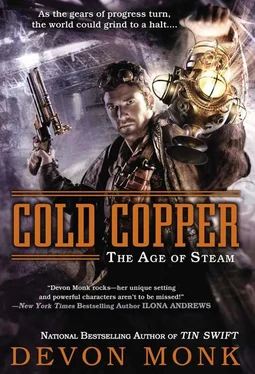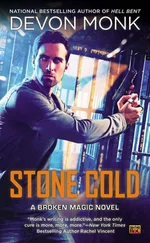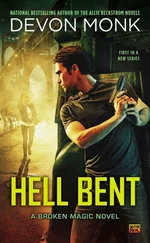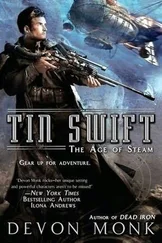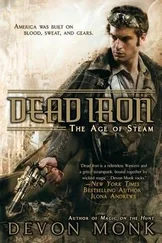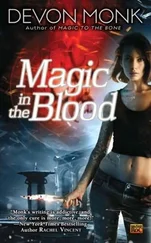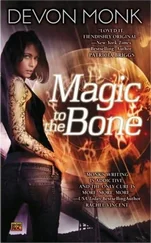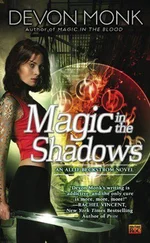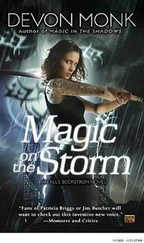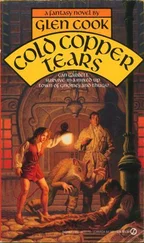“We are looking for the children who have gone missing,” Mae said. “Something you and your men should be doing.”
“Why? They are just casualties in our struggle with the Strange. We need the Strange for our devices, so we draw them here.”
“That was the sound of horns in the night?” Mae asked.
“Yes. A device, a generator, calls the Strange, and a netgun in the hands of my men traps them. When transferred into these batteries and mixed with glim, the Strange have remarkable, and powerful, properties.” He tapped the glass globe in the center of the headless matic. The Strange there jerked away from his touch.
“It is the perfect use for the Strange. We harvest and harness them. With the Strange under our control, the witches at our service, and a nearly unlimited supply of glim and gold, the war is won before it even begins. We will own and rule this land and any other that suits our fancy. You, Mrs. Lindson, are looking at your new king.”
“I am looking at a dead man,” she said quietly. “And a fool.”
She lifted her hands, whispering the words to a spell.
Cedar struggled up onto his feet—and fell. The cold, the pain, dragged at him as surely as a weight around his neck.
Mae didn’t turn toward him. He didn’t know if she could even hear him trying to call her name.
Vosbrough pressed something that looked like a telegraph key at his belt, tapping out a message, and the headless, bloodless creature fueled by Strange and glim raised its weapon at Mae and fired.
Captain Hink’s head felt like a swarm of bees had taken up hiving there. He’d gotten hit in the head, along with more than a few good thumps in the side, during that jail brawl. He’d lost blood and the lump on the back of his noggin was making him see double between blinks.
In any normal circumstance after a brawl like that, he’d hit the sky, hole up a while, and drink away the pain until the world straightened out again.
But he was without his ship, without booze, and stuck in a dying man’s church. He was also the last chance Rose Small, the Madders, the Hunt brothers, and Mae had to grab up the Holder and finish off finding the young folk.
He’d told Rose to go. He told her he’d be fine. And he supposed that was true. For as long as their ammunition held out.
“So what weapons do we have left?” he asked.
Miss Dupuis and Mr. Wicks, who apparently had been in the middle of a conversation, both looked over at him.
“We’re surrounded, correct?” he asked as he walked to the back windows and looked out.
“What supplies do we have to fight with?”
“Who said we have decided to fight?” Miss Dupuis said.
“And who said you are the one to make the decisions around here?” Wicks asked.
“I was a captain in the war,” Hink said.
“I am your superior,” Wicks said. “Is there another language in which you’d rather I say that, and in which you might understand? Pirate, perhaps? Or fists?”
“Guns,” Hink said, ignoring his yatter and talking to Miss Dupuis instead. “How many do we have, how many do they have?”
“Father Kyne doesn’t appear to own anything but a hunting rifle. I have my gun, Wicks has his, and you have yours.”
“Bullets?”
She shook her head. “We have two sticks of dynamite, though. We can make a stand, but we won’t win a firefight.”
“This is Sheriff Burchell,” the man yelled. “We’ve given you time to put your guns down, walk out, and turn yourselves in so that justice can be done. If we don’t see every man and woman out here on the ground in front of us in one minute, we will be forced to take care of this in a much less civilized manner.”
“How many men out there?”
Wicks pulled off his glasses and wiped a clean white cloth over the lenses. “Sheriff and his deputy, and the posse they rounded up. Perhaps thirty men, wouldn’t you agree, Miss Dupuis?”
“At least that, yes.”
“Sounds good to me,” Hink said.
“Do you have a plan?” Miss Dupuis asked.
“Of course I have a plan,” Hink said as he pulled his gun and strode out of the kitchen toward the front of the building. “Keep shooting until I run out of bullets.”
“Mr. Alun Madder,” Rose said, her good hand sliding down to her gun, “you must know that I respect you and your brothers for those fine deviser minds of yours. And I certainly can understand when a brain slips a cog and goes off to wander down a whimsical path. But you will never have my body as a bargain for your gain. Never.”
Alun regarded her through sharp eyes. “Rose Small, I find myself becoming more and more fond of you as time goes by. I agree. Your body is your own. Perhaps I misspoke.”
She kept her hand on her gun. She knew that the Madders used words like a watchmaker used tools: precisely and with intention.
“Then respeak yourself, Mr. Madder. Clearly.”
“We come from…old blood, we Madders. Blood that stretches back for more days and years than people have numbers for. We are uncommon men, and we walk the earth by choice, for reasons of our own. Old blood brings with it certain advantages. You’ve seen only the barest hint of the things we know, the things we can do.”
He paused, and Rose was glad for it. She found it hard to breathe when he was speaking. Alun Madder and both of his brothers were miners, devisers, and brawlers. But sometimes, in the rare moments when the flame of their humanity was uncovered and let burn free, they were more than just three men: they were a force, a unit, brothers like none she had known. And when one of them intended to use words to capture your attention, even breathing seemed an unnecessary distraction.
“The reason I tell you these things, things I do not willingly explain to most men,” he continued, “is because you too are of uncommon blood, Rose Small.”
He waited, they all waited, as if they were listening for the first call of a bird to signal the dawn.
“You think I’m like you?” she asked.
“Not think. Know.”
“You think we’re…kin?”
Alun hitched one shoulder in a shrug, but his eyes were steady, unreadable. “There are stranger things that have happened in this world.”
Brothers Bryn and Cadoc both chuckled.
“We can’t know,” Rose said. “You can’t know. Unless there are records?”
“None that we have. None that we’ve seen. But we have blood. And so do you. That’s all we need today.”
“For what?”
“To find the children.” He frowned just a little. “You have been listening to me, haven’t you?”
She ignored that. “How will blood do any good in finding them?”
“Just blood alone wouldn’t, but when the word is added, a promise”—he nodded once—“that is the thing that can change the winds.”
“Mr. Madder,” Rose said. “I am not a slow thinker, but your words don’t mean a thing to me.”
“It’s the promise and blood,” Cadoc said, “that will give us reach. Our feet are tied, bound to this side of the road. Our lives are tied to the promise of finding the children. We alone, Madder blood, must find the children to be released from the promise. If anyone else finds them, we will remain, locked to this city.”
“Unless Father Kyne kicks off,” Bryn noted.
Cadoc nodded at that. “His death will release the promise. But that is not what we want. We want to fulfill our promise, bring closure to our word given to his father’s father. To do that, we need you, Rose. Blood of our blood, in some curious manner. You will be our hands and our feet. You will reach the children since we cannot.”
“The practicalities of it,” Bryn picked up, “are simple. You vow to us to join in our promise to rescue the children and fulfill our debt to the Kyne family. A drop of your blood mingled with ours on a rope or wire”—he pulled a thin length of copper wire on a spool out of the pack at his side—“this wire, will be enough to stretch our reach, carry our blood and our promise.”
Читать дальше
